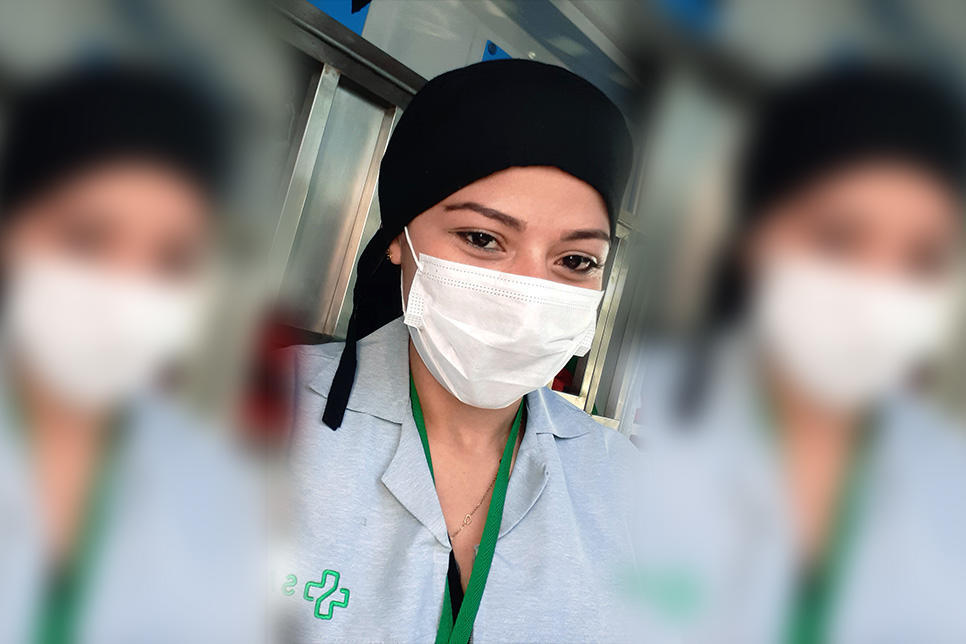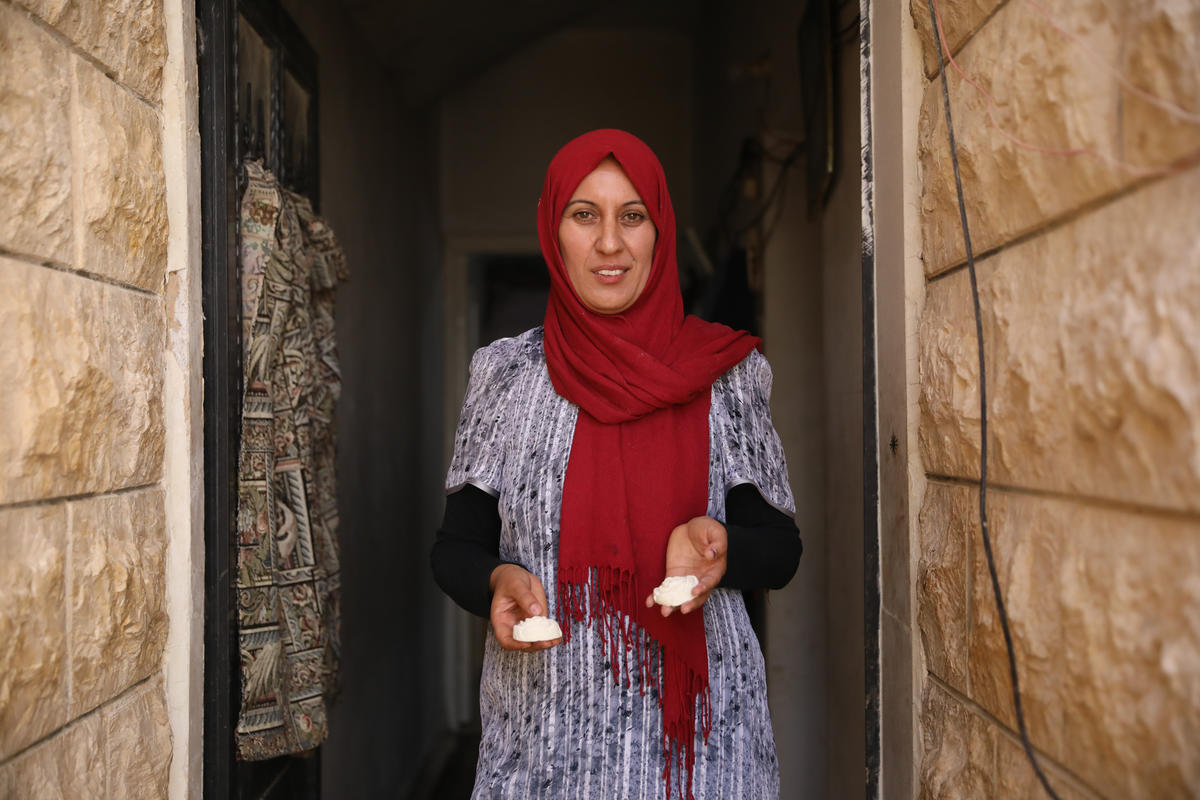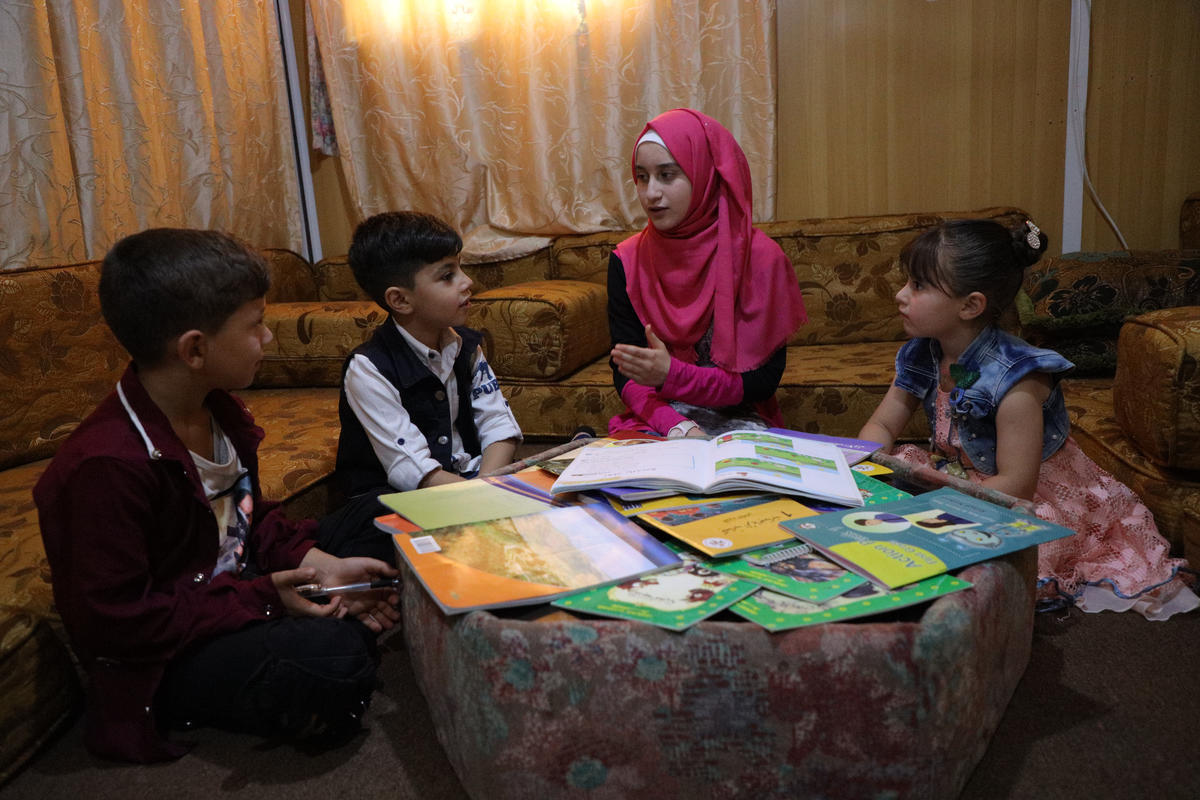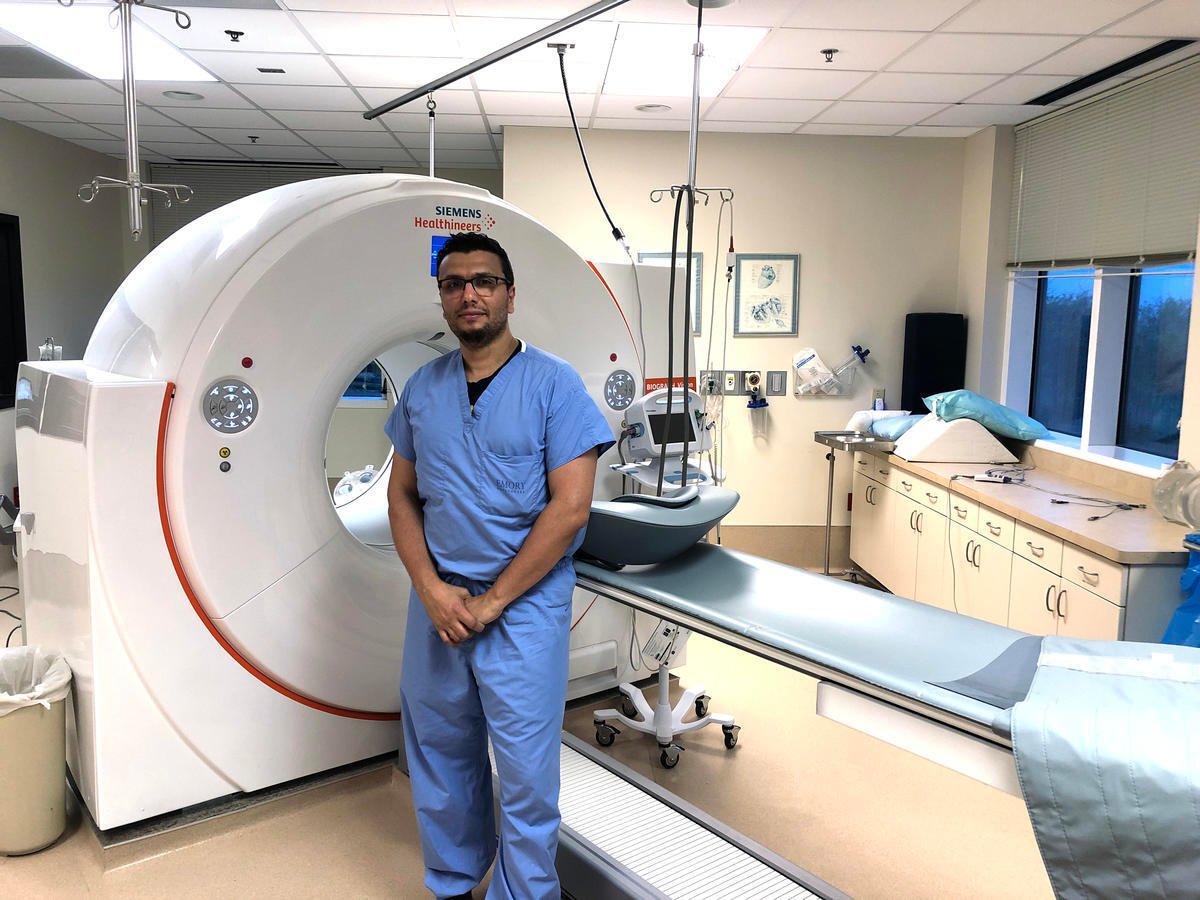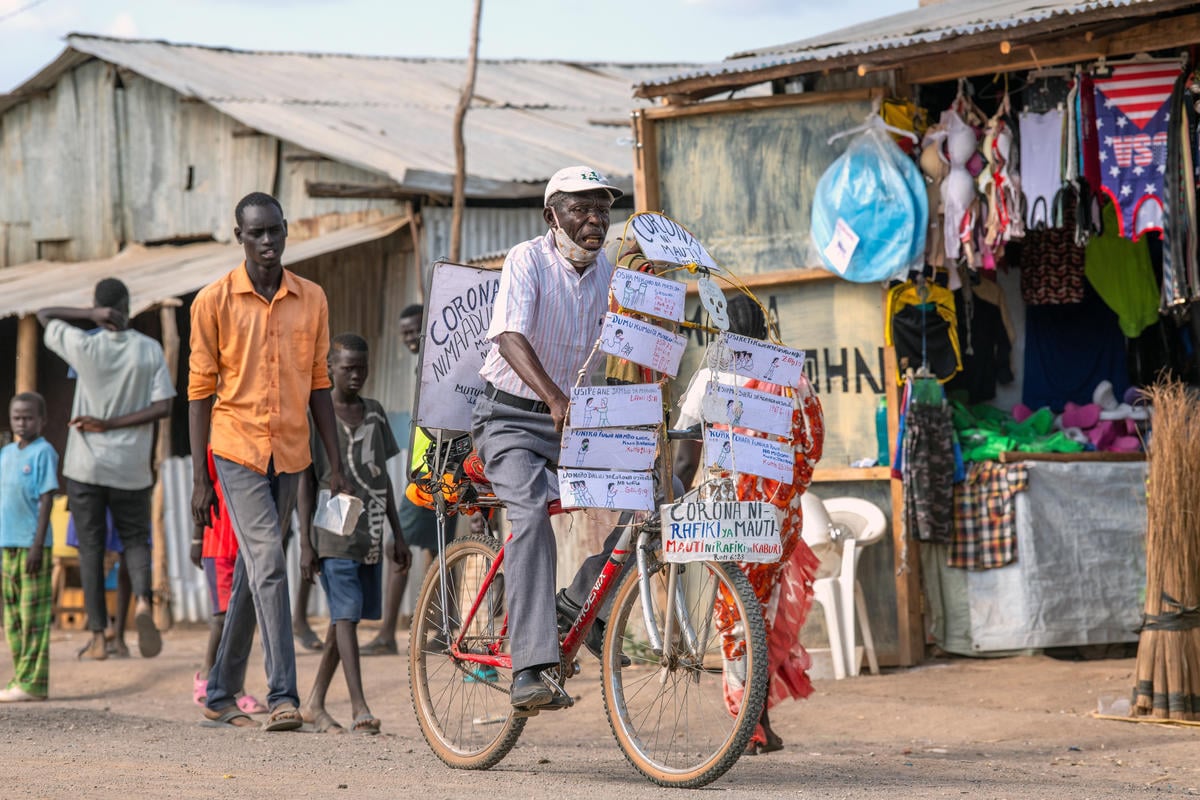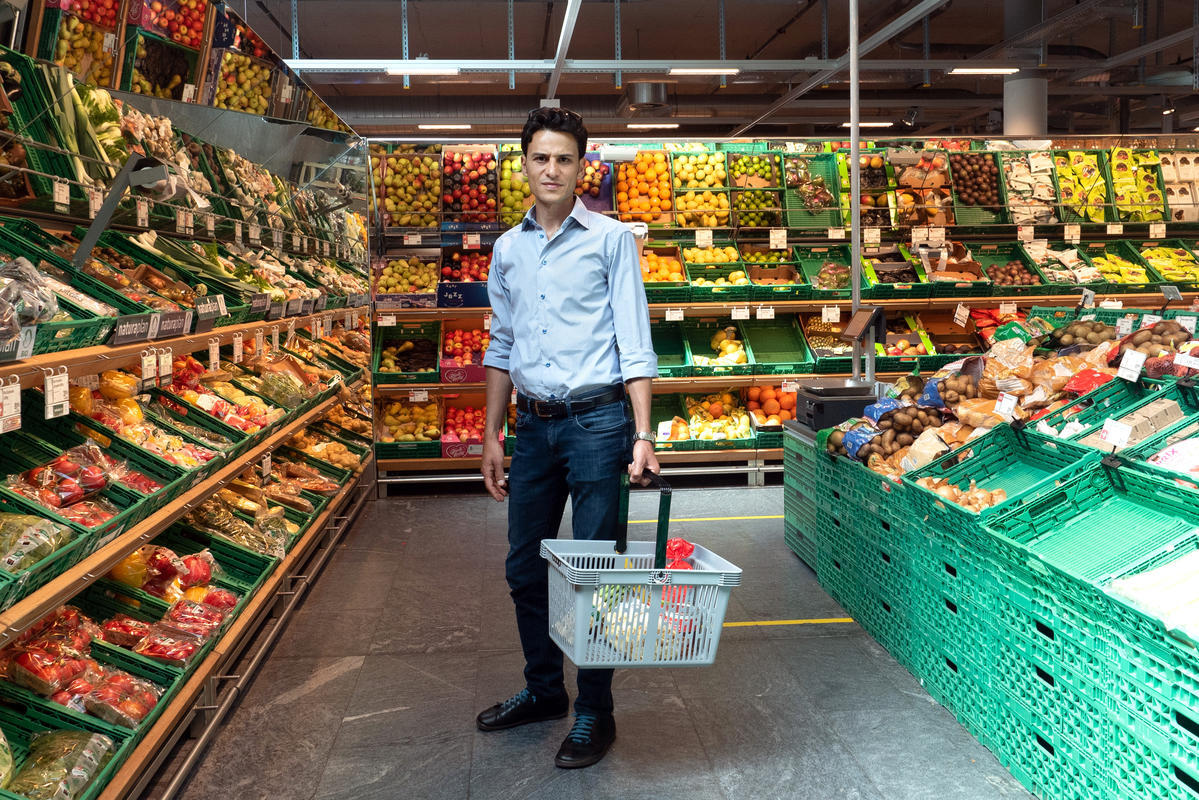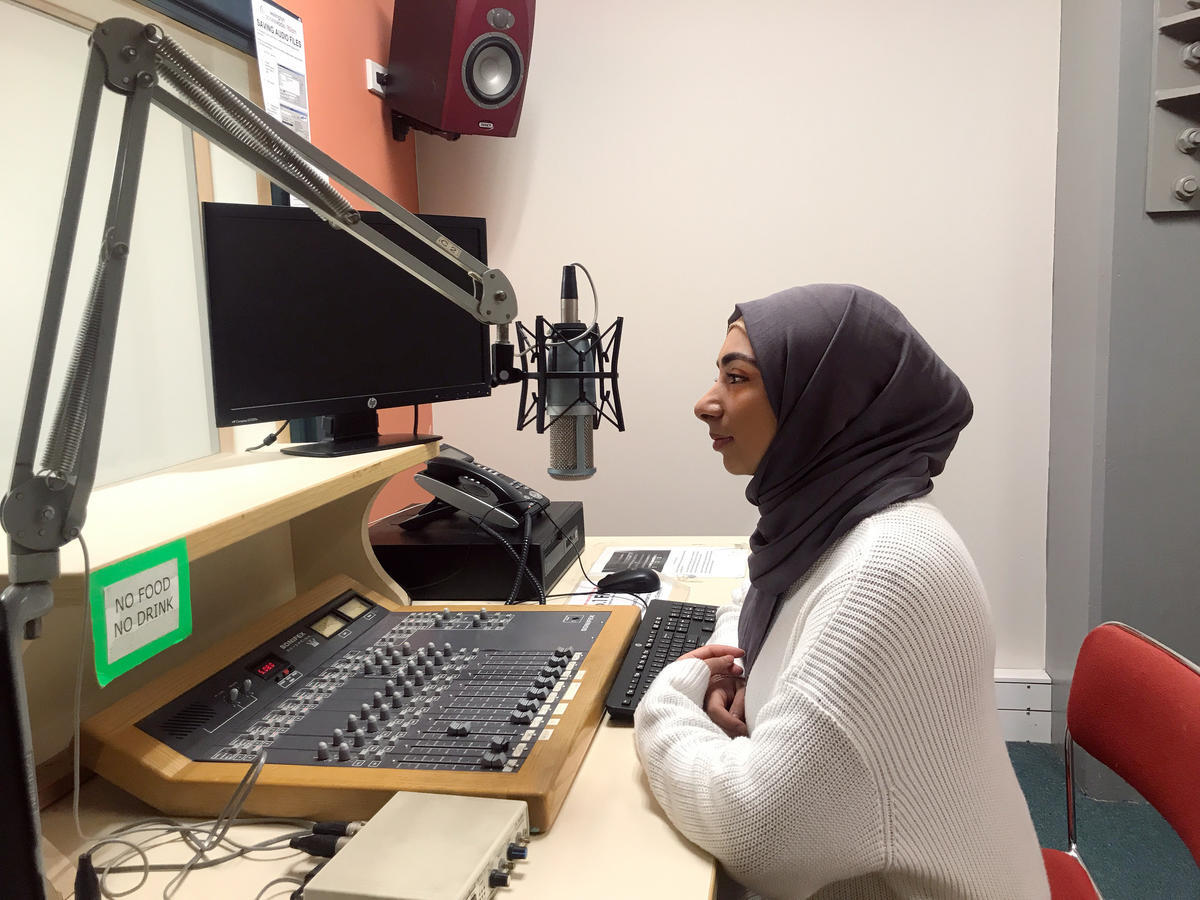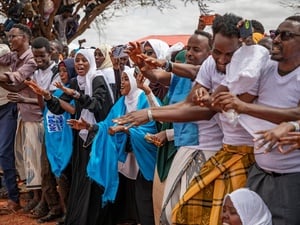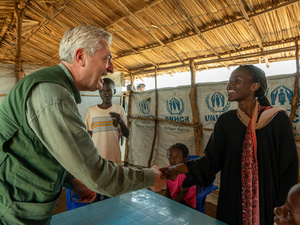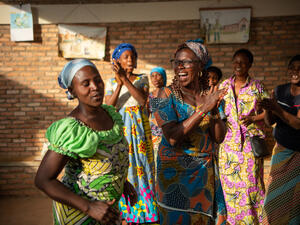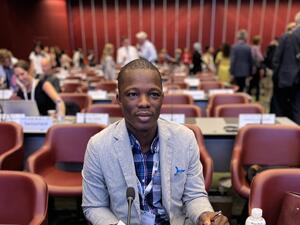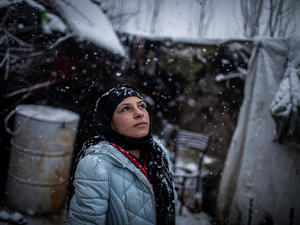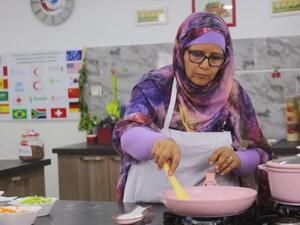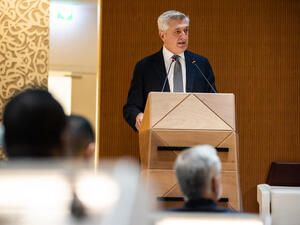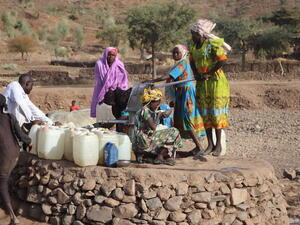Seven refugees making a difference during the time of COVID-19
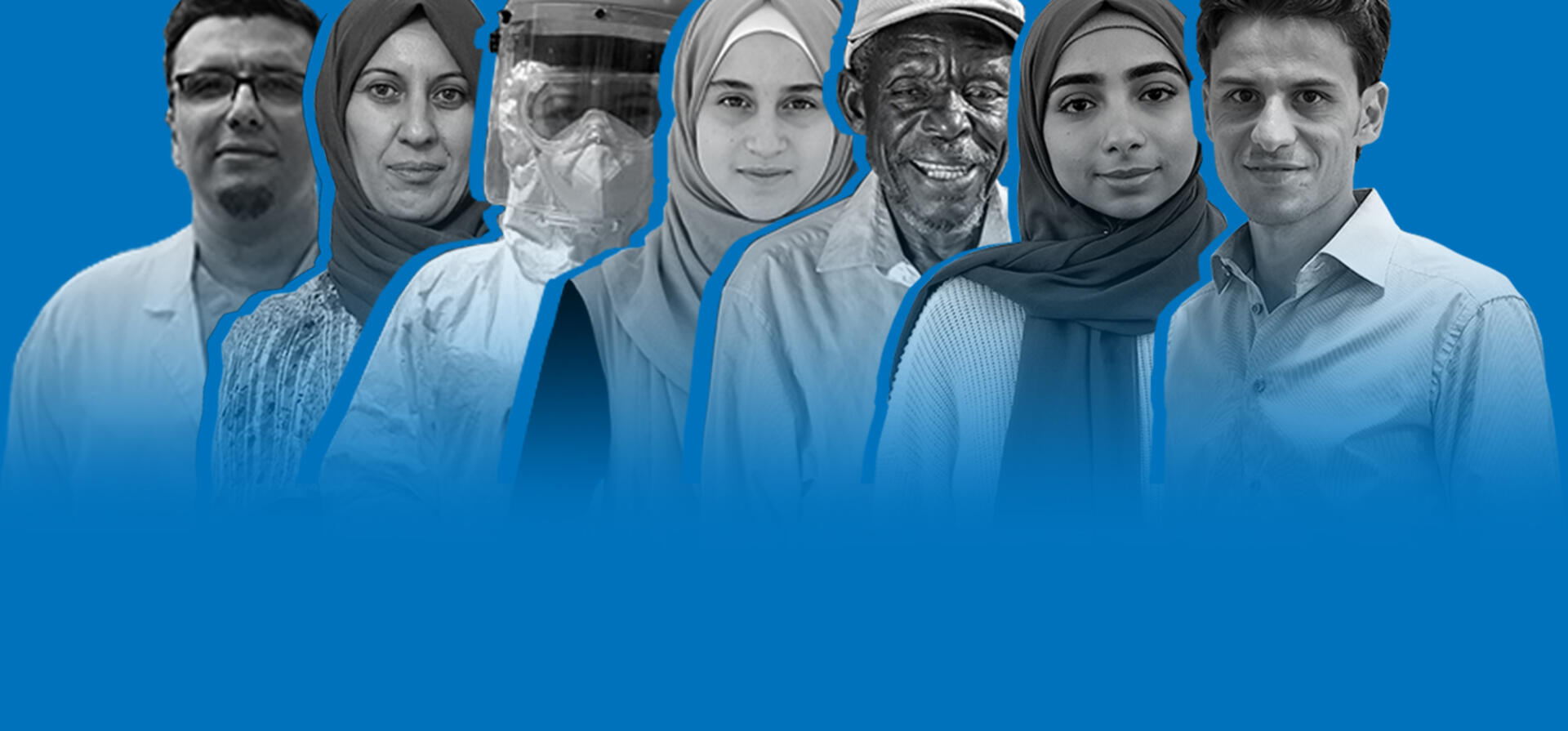
Seven refugees making a difference during the time of COVID-19
For almost two months now, Carmen Parra has been working 12- and 24-hour shifts as part of an ambulance crew in Peru that visits suspected COVID-19 patients in their homes and transports those who are critically ill to hospital.
Despite sometimes going days without seeing her three children, who she leaves in the care of a close friend, she is proud to have been selected to become part of the COVID-19 response team.
“I am happy to work, to support people who need it, to put my skills to good use,” says Carmen, a 35-year-old widow who worked as a doctor in Venezuela before seeking asylum in Peru in 2017.
She spent the next two years working as a waitress and a sales assistant, and then as a receptionist at a radiography clinic before the UN Refugee Agency, UNHCR, and a local NGO helped her get her medical credentials recognized in Peru. She returned to the radiography clinic early this year, but this time as a doctor.
When the clinic closed soon afterwards because of the pandemic, she applied to join Peru’s COVID-19 response as part of the ambulance team.
This World Refugee Day, Carmen is not the only refugee fighting on the front lines of the coronavirus pandemic. From health workers to educators, to broadcasters and volunteers, many refugees are finding ways to play a part, even as they face the same loss of work, schooling, and face-to-face contact with family and friends that so many people around the world have struggled with in recent months.
"We need soap now more than ever."
Midia Said Sido’s contribution is making soap so that her children and other Syrian refugees living in her community in southern Lebanon can wash their hands regularly and reduce the spread of the virus.
“We need soap now more than ever,” she points out.
Back in Aleppo, Midia used to watch her parents boil ingredients to make the region’s renowned laurel soap. Through a course offered by UNHCR in Lebanon, she learned how to use a cold process to make soap at home. When asked if she would like to contribute to coronavirus prevention efforts by producing medical soap, she quickly agreed and joined an online training session.
“It’s something good for me, and it can benefit other people too,” she says. “I would like to teach other women how to make it.”
Fourteen-year-old Sidra Median Al-Ghothani, a Syrian refugee living in Jordan’s Za’atari refugee camp, shows that age is no barrier to playing a part in responding to the pandemic. An aspiring teacher who believes that education “builds the human personality”, she did not want to see her younger brother and her neighbour’s children fall behind when schools in the camp closed due to the coronavirus.
“Students had to study using e-learning applications or televised education,” she explains. “But many students need help with these education methods, and their parents couldn’t support them, so I volunteered to teach my neighbour’s children.”
The biggest challenge, Sidra adds, has been patiently persuading her young pupils to do their schoolwork rather than watching cartoons.
Heval Kelli knows about the importance of education. He arrived in the southern US town of Clarkston, Georgia, in 2001 as an 18-year-old Syrian refugee and enrolled at Georgia State University 10 months later. Nearly 20 years on, he is a cardiology fellow at a large Atlanta hospital and has co-founded several non-profit organizations focused on mentoring the next generation of doctors from migrant and refugee communities. Recently, he has also found the time to work as a volunteer physician at a COVID-19 drive-through testing site and to do online education with members of the Kurdish community about the virus.
“We need refugees to be part of the fight, because in our resilience and what we’ve been through, we could actually be a supporting arm for a lot of the native countries that accept us,” Heval told UN Secretary-General António Guterres during a recent video call that was widely shared on social media.
"I believe solidarity is a human responsibility"
Shadi Shhadeh, a Syrian refugee living in Geneva, Switzerland, also believes that refugees’ experiences of surviving danger and uncertainty make them well-placed to understand the need to work together during the current pandemic.
“I believe solidarity is a human responsibility,” he says. “As a refugee, I understand what is the meaning of a crisis.”
Back in March, when the Swiss government issued advice that older people and those with pre-existing conditions should stay at home, Shadi and his wife, Regula, realized that many people would need help. Shadi swiftly enlisted his Syrian friends in Geneva and Lausanne to put up flyers in apartment building lobbies and supermarkets offering to do shopping or run errands for those unable to go out. Within weeks, the volunteers – most of them Syrian refugees – were shopping for some 200 people.
Djuba Alois, a 75-year-old refugee from the Democratic Republic of the Congo, says there are two kinds of refugees in Kakuma, the refugee camp where he lives in Kenya: those who are informed about the coronavirus, and those who are not. He has made it his mission to educate the uninformed. As a pastor, Djuba is used to sharing information from a pulpit, but with churches closed during a COVID-19 lockdown, he has re-purposed his bicycle to serve a similar function. With a hand-drawn poster attached to the front of the bike and a microphone mounted on the handlebars, he pedals through the camp urging people to wash their hands.
“I will create awareness every day so that people stay safe from coronavirus,” he says.
Creating awareness among refugees scattered around Wellington, New Zealand’s capital, requires a different approach. Twenty-year-old former Iraqi refugee Narjis Al-Zaidi is a university student and presenter of a radio programme called “Voice of Aroha”, which aims to create an inclusive platform for people from refugee and non-refugee backgrounds to share their views and experiences.
She and her co-presenters began talking about COVID-19 with their listeners, and sharing information with them via social media, when they realized that official advice wasn’t immediately available in languages such as Arabic, Amharic, Farsi and Spanish, or accessible to those who weren’t digitally literate.
“Coming from a refugee background can feel isolating on its own,” Narjis says. “We wanted to keep our listeners informed because it was an overwhelming situation we all had to deal with and most of the discomfort came from the uncertainty of [not knowing] what was going to happen next and how it would affect us.”
Narjis, Pastor Alois, Shadi, Dr Kelli, Sidra, Midia and Carmen all feature in a video UNHCR has produced to commemorate World Refugee Day on 20 June. The video is narrated by South African actor and UNHCR Goodwill Ambassador Nomzamo Mbata.
“It is more vital than ever that we stand together with refugees and show how [they] are coping and contributing in the fight against this virus,” she commented. “Everyone can make a difference. Everyone counts.”
In his message on World Refugee Day, UN High Commissioner for Refugees Filippo Grandi paid tribute to the refugees who have been stepping up to help respond to the pandemic, despite their own often precarious status.
“As we battle COVID-19, I draw inspiration from the resilience refugees have shown…and their determination to improve their own and others’ lives,” he said.
Writing by Kristy Siegfried, with reporting by Regina De La Portilla in Lima, Peru; Warda Al-Jawahiry in Beirut, Lebanon; Moh’d Al-Taher in Za’atari camp, Jordan; and Samuel Otieno Odhiambo in Kakuma camp, Kenya.

